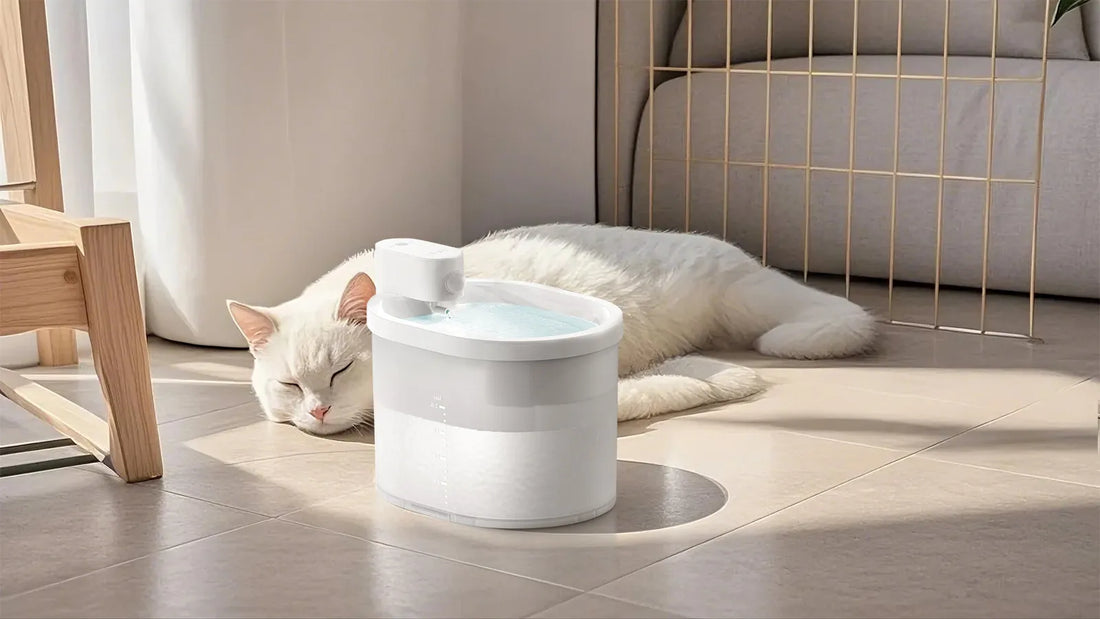Seeing your dog not drinking water after surgery can be a cause for concern. Post-surgical care is crucial for your pet's recovery, and hydration plays a vital role in this process. Understanding the reasons behind this behavior and knowing how to address it can make a significant difference in your dog's health.
Why Is My Dog Not Drinking Water After Surgery?
There are several reasons why your dog might refuse to drink water after undergoing surgery. Pain, discomfort, and the effects of anesthesia are common factors. Additionally, stress and changes in routine can also contribute to this behavior.
Pain and Discomfort
After surgery, your dog may experience pain and discomfort, which can make them reluctant to drink water. The surgical site might be tender, and the act of drinking could exacerbate the pain.
Effects of Anesthesia
Anesthesia can leave your dog feeling groggy and disoriented. It may take some time for the effects to wear off, during which your dog might not feel like drinking water.
Stress and Anxiety
Surgery can be a stressful experience for your dog. The unfamiliar environment of the veterinary clinic, the presence of strangers, and the overall experience can lead to anxiety, causing your dog to avoid drinking water.
How to Encourage Your Dog to Drink Water After Surgery
Ensuring your dog stays hydrated is essential for a smooth recovery. Here are some practical tips to encourage your dog to drink water after surgery.
Provide Fresh Water
Always make sure your dog has access to fresh, clean water. Change the water frequently to keep it appealing. Some dogs are more likely to drink water if it's fresh and cool.
Use a Different Bowl
Sometimes, the type of bowl can make a difference. Try using a different bowl or even a shallow dish to see if your dog prefers it. Some dogs may have preferences for certain materials or shapes.
Add Flavor to the Water
Adding a small amount of low-sodium chicken or beef broth to the water can make it more enticing for your dog. Ensure the broth is free from onions, garlic, and other harmful ingredients.
Offer Ice Cubes
Some dogs enjoy licking ice cubes, which can help them stay hydrated. You can also try freezing low-sodium broth into ice cubes for added flavor.
Monitor Water Intake
Keep a close eye on how much water your dog is drinking. If you notice a significant decrease in water intake, contact your veterinarian for further advice.
When to Seek Veterinary Help
While it's common for dogs to drink less water immediately after surgery, prolonged refusal to drink can lead to dehydration and other complications. Here are some signs that indicate it's time to seek veterinary help.
Lethargy and Weakness
If your dog appears lethargic, weak, or unresponsive, it could be a sign of dehydration. Dehydration can quickly become a serious issue, especially in post-surgical recovery.
Dry Mouth and Gums
Check your dog's mouth and gums. If they appear dry or sticky, it could indicate dehydration. Healthy gums should be moist and pink.
Loss of Appetite
A prolonged loss of appetite, combined with a refusal to drink water, can be a red flag. Your veterinarian may need to intervene to ensure your dog gets the necessary nutrients and hydration.
Vomiting or Diarrhea
If your dog is vomiting or has diarrhea, it can lead to rapid dehydration. Seek immediate veterinary attention if these symptoms occur.
Preventing Dehydration in Dogs After Surgery
Preventing dehydration is key to ensuring your dog's recovery goes smoothly. Here are some additional measures you can take to keep your dog hydrated.
Offer Wet Food
Wet food contains a higher moisture content than dry kibble, which can help keep your dog hydrated. You can also mix water into your dog's food to increase their fluid intake.
Create a Comfortable Environment
Make sure your dog has a quiet, comfortable place to rest and recover. A stress-free environment can encourage your dog to drink water and eat.
Use a Syringe or Dropper
If your dog is particularly reluctant to drink, you can use a syringe or dropper to gently administer water. Be careful not to force it, as this can cause stress and discomfort.
Follow Your Veterinarian's Advice
Always follow your veterinarian's post-surgical care instructions. They may provide specific recommendations based on your dog's condition and needs.
Your dog's recovery after surgery depends on many factors, and hydration is one of the most critical. By understanding the reasons behind your dog's reluctance to drink water and taking proactive steps to encourage hydration, you can help ensure a smooth and successful recovery. Remember, if you have any concerns about your dog's health, don't hesitate to contact your veterinarian for guidance.















1 comment
Sharon Bickerstaff
My dog had a hysterectomy. She drank a little water the first to days afterwards and it’s been 4 days. She will lick it off my fingers. What else can I do?